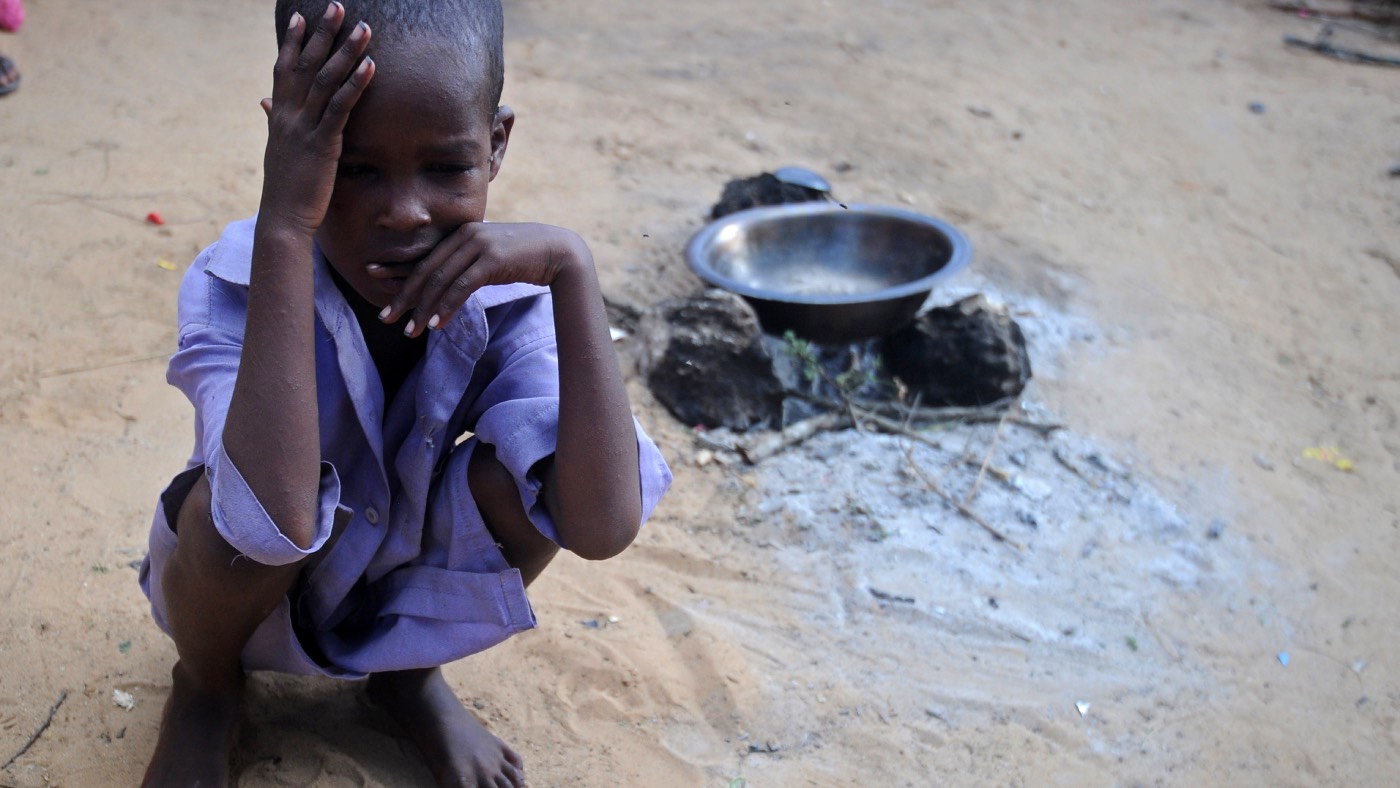Coronavirus pandemic threatens ‘biblical famine’
UN expert says the crisis is causing a ‘hunger pandemic’

A free daily email with the biggest news stories of the day – and the best features from TheWeek.com
You are now subscribed
Your newsletter sign-up was successful
The coronavirus could lead to a famine “of biblical proportions,” the chief of the UN’s food relief agency has warned.
“We are not talking about people going to bed hungry,” David Beasley, executive director of the World Food Programme, told The Guardian.
“We are talking about extreme conditions, emergency status – people literally marching to the brink of starvation. If we don’t get food to people, people will die.”
The Week
Escape your echo chamber. Get the facts behind the news, plus analysis from multiple perspectives.

Sign up for The Week's Free Newsletters
From our morning news briefing to a weekly Good News Newsletter, get the best of The Week delivered directly to your inbox.
From our morning news briefing to a weekly Good News Newsletter, get the best of The Week delivered directly to your inbox.
More than 30 countries in the developing world could experience the famine, he said, and in one third of those countries there are already more than one million people on the brink of starvation.
The fourth annual Global Report on Food Crises - compiled by the World Food Programme - focusses attention on Yemen, the Democratic Republic of the Congo, Afghanistan, Venezuela, Ethiopia, South Sudan, Sudan, Syria, Nigeria and Haiti.
–––––––––––––––––––––––––––––––For a round-up of the most important stories from around the world - and a concise, refreshing and balanced takeon the week’s news agenda - try The Week magazine. Start your trial subscription today –––––––––––––––––––––––––––––––
“This is truly more than just a pandemic – it is creating a hunger pandemic,” said Beasley at the UN security council yesterday. “This is a humanitarian and food catastrophe.”
A free daily email with the biggest news stories of the day – and the best features from TheWeek.com
He urged world leaders to bring forward about $2bn (£1.6bn) of aid that has been pledged, so it can be sent to the frontline as swiftly as possible.
He had already been warning that 2020 would be a disastrous year even before the Covid-19 crisis, with conflict and natural disaster threatening food systems.
“Now, my goodness, this is a perfect storm,” he said. “We are looking at widespread famines of biblical proportions.”
He said disaster can be averted but it will cost a lot of money to stop it. Referring to last year’s World Food Programme spending of $7.5bn (£6bn), he said: “I could easily see that need [for budget] doubling.”
A report has found that at least 265 million people are being pushed to the brink of starvation by the coronavirus pandemic. This is twice the number under threat before the crisis.
-
 The environmental cost of GLP-1s
The environmental cost of GLP-1sThe explainer Producing the drugs is a dirty process
-
 Greenland’s capital becomes ground zero for the country’s diplomatic straits
Greenland’s capital becomes ground zero for the country’s diplomatic straitsIN THE SPOTLIGHT A flurry of new consular activity in Nuuk shows how important Greenland has become to Europeans’ anxiety about American imperialism
-
 ‘This is something that happens all too often’
‘This is something that happens all too often’Instant Opinion Opinion, comment and editorials of the day
-
 A Nipah virus outbreak in India has brought back Covid-era surveillance
A Nipah virus outbreak in India has brought back Covid-era surveillanceUnder the radar The disease can spread through animals and humans
-
 Covid-19 mRNA vaccines could help fight cancer
Covid-19 mRNA vaccines could help fight cancerUnder the radar They boost the immune system
-
 The new Stratus Covid strain – and why it’s on the rise
The new Stratus Covid strain – and why it’s on the riseThe Explainer ‘No evidence’ new variant is more dangerous or that vaccines won’t work against it, say UK health experts
-
 RFK Jr. vaccine panel advises restricting MMRV shot
RFK Jr. vaccine panel advises restricting MMRV shotSpeed Read The committee voted to restrict access to a childhood vaccine against chickenpox
-
 RFK Jr. scraps Covid shots for pregnant women, kids
RFK Jr. scraps Covid shots for pregnant women, kidsSpeed Read The Health Secretary announced a policy change without informing CDC officials
-
 New FDA chiefs limit Covid-19 shots to elderly, sick
New FDA chiefs limit Covid-19 shots to elderly, sickspeed read The FDA set stricter approval standards for booster shots
-
 RFK Jr.: A new plan for sabotaging vaccines
RFK Jr.: A new plan for sabotaging vaccinesFeature The Health Secretary announced changes to vaccine testing and asks Americans to 'do your own research'
-
 Five years on: How Covid changed everything
Five years on: How Covid changed everythingFeature We seem to have collectively forgotten Covid’s horrors, but they have completely reshaped politics